What you’ll learn:
- Phentermine is FDA-approved for short-term weight loss, while Wegovy® is approved for long-term weight management. Its sister medication, Ozempic®, is FDA-approved for type 2 diabetes but sometimes prescribed off-label for weight loss.
- Phentermine is typically taken as a daily pill, while semaglutide medications, Wegovy® and Ozempic®, are injections you give yourself once a week.
- Semaglutide typically leads to greater and more sustained weight loss compared to phentermine, but which is right for you will depend on side effects, cost, and overall weight loss goals.
Interest in prescription weight-loss treatments has taken off as more people look for medical support to reach—and maintain—a healthy weight. Newer options like GLP-1 medications, boosted by the popularity of Ozempic® (off-label), have changed the way many think about what’s possible.
Two medications that people often turn to for weight loss are phentermine and Wegovy®. Some people also still use Wegovy®’s sister medication Ozempic®, which is FDA-approved for diabetes and contains the same active ingredient, semaglutide. Wegovy® and Ozempic® work identically but are available in different dose strengths.
Here’s a look at the differences between phentermine and semaglutide medications:
- Phentermine is a stimulant in pill form that helps suppress appetite for short-term use.
- Wegovy® and Ozempic® are injectable medications that mimic the hormone GLP-1 to regulate appetite and slow digestion.
Both phentermine and semaglutide medications remain central to today’s conversation about medical weight loss. Phentermine is often seen as a lower-cost, shorter-term tool, while GLP-1 medications like Wegovy® and Ozempic® have surged in popularity for their ability to drive significant weight reductions (though they can be pricey).
So how do you figure out which one might be right for you? We’ll walk through how each medication works, what kind of results you might expect, the costs, and other key factors—so you can find the one that best fits your lifestyle and goals. We’ll also go through some alternatives.
Phentermine vs. Wegovy® and Ozempic®: How do they work?
Semaglutide and phentermine can both help with weight loss, but how they work inside the body differs. Understanding what each medication does can help you see if one would be the right choice for you.
Phentermine
Phentermine is a stimulant that boosts brain chemicals, like norepinephrine, to suppress hunger signals. It’s FDA-approved for short-term use, typically up to 12 weeks. Using it beyond that period is considered off-label, but is becoming more common.
Phentermine is usually taken once daily in the morning, either before breakfast or a couple of hours afterward, depending on the prescription. Common doses range from 15 mg to 37.5 mg per day. Because it can interfere with sleep, it’s not typically taken later in the day.
One reason phentermine has stayed popular is cost. It’s widely available as a generic, which keeps prices significantly lower, which we’ll go through. It’s also sold under several brand names and as a combo medication:
- Lomaira™: This is an 8-mg lower-dose version of phentermine that can be taken up to three times a day before meals for more flexible dosing and to lower the potential of side effects.
- Qsymia®: This is a combo drug that pairs phentermine with topiramate and is FDA-approved for longer-term weight management.
Semaglutide (Wegovy® and Ozempic®)
Semaglutide is a GLP-1 receptor agonist, which means it mimics your body’s natural GLP-1 hormone to reduce appetite, delay stomach emptying, and support healthier blood sugar levels.
Both Wegovy® and Ozempic come as once-weekly injections, taken under the skin (subcutaneous) in areas like the stomach, thigh, or upper arm.
People start at the lowest dose to help the body adjust and then gradually increase as needed. Not everyone reaches the highest dose; you’ll remain at the dose that helps you lose weight steadily (1 to 2 pounds per week) with the fewest side effects.
Here are the doses of semaglutide in Wegovy® and Ozempic®. Remember, these two medications are exactly the same outside of dosing and FDA approval:
- Wegovy®
- Available in 0.25 mg, 0.5 mg, 1 mg, 1.7 mg, and 2.4 mg.
- Available in 0.25 mg, 0.5 mg, 1 mg, 1.7 mg, and 2.4 mg.
- Ozempic®
- Available in once-weekly doses of 0.25 mg, 0.5 mg, 1 mg, and 2 mg.
- Available in once-weekly doses of 0.25 mg, 0.5 mg, 1 mg, and 2 mg.
Phentermine vs. Wegovy®/Ozempic®: What are the differences?
Phentermine and semaglutide work in very different ways—including how each medication is taken, how long treatment typically lasts, cost, effectiveness, and side effects. Here’s a closer look at how the two compare across key categories.
How they are taken
- Phentermine is a daily oral medication, most often taken once in the morning to help curb appetite throughout the day.
- Lomaira™ is a lower-dose option that can be taken up to three times daily before meals.
- Qsymia® is a combination drug of phentermine and topiramate that is approved as a once-daily pill.
- Wegovy® and Ozempic® are taken as once-weekly injections that come in prefilled pens and are given under the skin of the upper arm, thigh, or stomach. Most people find the injections quick and relatively painless.
Treatment length
- Phentermine is intended for short-term weight loss, with FDA approval for about 12 weeks of use. That limit reflects its original 1959 approval, when long-term safety data were not available. Newer research suggests that some people may safely benefit from longer use, but anything beyond 12 weeks is considered off-label and should be done with careful medical supervision.
- Wegovy® and Ozempic® are meant for longer-term treatment. Most doctors prescribe semaglutide medications for a minimum of 6 to 12 months. Clinical studies of semaglutide show it can be taken safely for well over a year when needed.
Price without insurance
Cost is often one of the biggest deciding factors between phentermine and Wegovy® or Ozempic® as weight loss medication is rarely covered by insurance.
- Phentermine is generally budget-friendly, with a typical monthly cost of about $37 to $41 for generic tablets or capsules. Brand-name options vary:
- Lomaira™ averages around $28 per month
- Qsymia® (phentermine/topiramate ER combo) is higher, averaging about $150 monthly.
- Wegovy® averages around $1,350 per month without insurance, while Ozempic® has a list price of $998. Both can be purchased with a prescription through the NovoCare pharmacy for $499.
Effectiveness
Semaglutide is typically associated with more weight loss than phentermine, but results still depend heavily on eating habits and physical activity. Phentermine is primarily studied and prescribed for short-term weight loss, while Wegovy® is intended for longer-term use. We’ll look more closely at expected weight-loss results for each option in a later section.
Prescription requirements
Getting a prescription for each medication works a bit differently.
- Phentermine is classified as a controlled substance, so federal rules require at least one in-person medical visit before it can be prescribed.
- Wegovy® and Ozempic® can be prescribed through telehealth. If you qualify for Noom Med, you’ll be connected with a clinician who can evaluate you remotely and, if appropriate, write a prescription.
Side effects
The side effects of these medications also differ based on how they work in the body.
- Phentermine, which stimulates the central nervous system, can lead to cardiovascular and nervous system effects such as higher blood pressure, a faster heart rate, restlessness, and trouble sleeping. Read more about the side effects of phentermine.
- Semaglutide acts on the digestive and hormonal systems and is more likely to cause nausea, vomiting, diarrhea, or constipation, particularly in the early stages of treatment or when the dose is increased. Read more about the side effects of semaglutide.
Phentermine vs. Wegovy®/Ozempic®: What are the similarities?
These two medications don’t share much in common, but they overlap in a couple of areas.
They can be used to aid weight loss
Phentermine is approved for short-term weight management, Wegovy® can be prescribed to aid long-term weight loss, and Ozempic® can be prescribed for off-label weight loss. In all cases, providers recommend combining these medications with balanced eating and increased activity for the best outcomes.
Insurance coverage is uncommon
Whether you’re considering phentermine, Wegovy®, or Ozempic, most insurance plans, including Medicare and Medicaid, won’t cover these medications for weight loss. Here are some other insurance considerations:
- Phentermine: Some commercial plans may help with costs, but many don’t cover weight-loss prescriptions.
- Wegovy®/Ozempic®: Wegovy® is unlikely to be covered by most insurance plans. Ozempic® is more likely to be covered when it’s prescribed for type 2 diabetes, not off-label for weight loss.
Phentermine vs semaglutide: Which is better for weight loss?
Both medications have been shown to help people lose weight, but they work on different timelines and tend to deliver different results. Here’s what research shows about average weight loss with each:
- Phentermine: Studies show that, when paired with healthy eating and regular activity, people taking phentermine lose an average of 5% of their starting weight over 12 weeks. For someone weighing 200 pounds, that’s roughly 10 pounds.
- Semaglutide: In clinical studies, people lost an average of 15% of their starting weight over 68 weeks at the highest dose of Wegovy (2.4 mg), with some losing even more. For someone weighing 200 pounds, that’s about 30 pounds.
How long does it take to see results?
Phentermine can help kickstart weight loss in a shorter window, but Wegovy® typically leads to more substantial reductions over time. Your doctor can help decide which approach aligns with your health goals and how long you plan to stay on treatment.
- Phentermine: Weight loss usually begins within the first few weeks and continues during the short course of treatment.
- Wegovy®: Because it’s intended for long-term use, Wegovy® leads to gradual but significant weight loss, with steady progress over several months and beyond.
Who can be prescribed phentermine or Wegovy®/Ozempic® for weight loss?
Before starting either of these medications, your provider will review your health background, existing conditions, and personal weight-loss goals. Both phentermine and Wegovy® have specific safety considerations, so it’s important to know who may qualify and who should avoid them.
Who can take phentermine for weight loss?
Phentermine is FDA-approved for short-term use of up to 12 weeks, to support weight loss when combined with healthy eating, exercise, and behavioral changes. You may qualify for phentermine if you have:
- BMI of 30 or higher
- BMI of 27+ with at least one weight-related health condition, such as high blood pressure or high cholesterol
Who shouldn’t take phentermine?
Certain conditions make phentermine unsafe. You can’t take phentermine if you:
- Have heart issues, such as uncontrolled high blood pressure, irregular heartbeat, or a history of stroke.
- Live with eye conditions like glaucoma or an overactive thyroid (hyperthyroidism).
- Have used MAOI antidepressants in the past 14 days or have a known allergy to phentermine.
- Are pregnant or breastfeeding.
Who can take semaglutide for weight loss?
You may qualify for Wegovy® or Ozempic® if you have:
- A BMI of 30+
- A BMI of 27+ with a weight-related health issue like high blood pressure or high cholesterol.
Who shouldn’t take Wegovy® or Ozempic®?
You can’t take any semaglutide medications if you:
- Have a history, either personal or in the family, of medullary thyroid cancer (MTC) or multiple endocrine neoplasia type 2 (MEN 2).
- Are allergic to semaglutide or any of the ingredients in the injection.
- Are pregnant, planning to become pregnant, or breastfeeding.
Talk to your doctor about whether semaglutide medications are right for you if you have a history of:
- Pancreatitis or severe gastrointestinal problems.
Read more about the safety of Wegovy® and Ozempic®.
Can you switch between semaglutide medications and phentermine?
You can switch between semaglutide medications and phentermine, but you should only do so under medical supervision. These medications work in very different ways and have different dosing schedules, so your provider will guide you on timing, starting dose, and monitoring.
Reasons you might want to change medications include:
- Treatment goals and timeline: Phentermine is approved for short-term use, while Wegovy® is intended for longer treatment.
- Desired weight loss: Semaglutide generally leads to more significant weight loss than phentermine.
- Comfort with administration: Some people prefer a daily oral pill over weekly injections, or vice versa.
- Side effect tolerance: Stimulant effects from phentermine or digestive issues from Wegovy® can motivate a change.
- Budget or coverage changes: Wegovy® is significantly pricier than phentermine, so insurance coverage or changes in budget can affect your choice.
If you switch from Wegovy® or Ozempic® to phentermine:
Moving from semaglutide to phentermine means going from a long-acting weekly injection to a short-term daily pill. Phentermine can help reduce hunger, but it doesn’t directly influence digestion or appetite signals the way Wegovy® does, so you may notice a difference in how full you feel between meals. Your provider will guide dosing and monitor for stimulant-related effects like restlessness, faster heart rate, or higher blood pressure.
If you switch from phentermine to semaglutide:
Semaglutide generally offers steadier appetite control and may support greater weight loss over time. Everyone starts at the lowest dose of semaglutide, which is slowly increased to help limit digestive side effects. You’ll need to get comfortable with the once-weekly injection process, which most people find quick and nearly painless.
If you take phentermine or semaglutide to lose weight, will you need to keep taking them forever?
The answer depends on which medication you’re using. Phentermine and semaglutide medications are both tools that can help with weight loss, but their timelines are quite different.
Phentermine
Phentermine treatment is usually limited to about 12 weeks. Recent research indicates that longer use may be safe and can help sustain weight loss for some people, but it remains an off-label approach and requires careful, ongoing supervision from your healthcare provider.
Wegovy®/Ozempic®
Semaglutide doesn’t permanently change how your body works, so stopping it can lead to some weight regain. Still, that doesn’t mean weight will automatically return. A study shows that tapering off gradually instead of quitting abruptly can help many people maintain their progress for months.
Having healthy habits around eating and movement while on the medication also makes a big difference. You’ll get the best results if you change your eating patterns with a structured plan like Noom, which guides you in building sustainable habits and staying consistent so you can maintain results well beyond your last dose.
Phentermine vs Wegovy®/Ozempic®: The difference in side effects
As we mentioned earlier, phentermine is a stimulant that affects the central nervous system, while semaglutide is a GLP-1 receptor agonist that slows digestion and impacts appetite hormones. Their side effect profiles also reflect these differences.
Common side effects
Most side effects are mild and often improve as your body adjusts. Here’s what you can expect
- With phentermine: Dry mouth, a metallic taste, constipation or diarrhea, mild nausea, dizziness, tremor, headaches, restlessness, and trouble sleeping are common. These can usually be managed by following your provider’s guidance on dose and timing. Read more about phentermine side effects.
- With semaglutide: Digestive issues like nausea, vomiting, diarrhea, constipation, or stomach discomfort are common at first. These symptoms often ease as the dose is gradually increased. Read more about semaglutide side effects.
Severe side effects and warnings
Severe side effects are less common with phentermine and semaglutide medications like Wegovy® and Ozempic®, but require prompt medical attention if they appear.
Phentermine: What to watch for
- Heart-related issues: Contact your provider if you notice a rapid or irregular heartbeat, palpitations, or consistently high blood pressure.
- Chest discomfort or breathing issues: Seek emergency care if you develop chest pain, trouble breathing, or swelling in your legs or ankles.
- Severe nervous system effects: Report intense restlessness, agitation, or sudden mood changes to your doctor as soon as possible.
- Sleep problems: If insomnia persists or affects daily life, talk to your provider about adjusting or stopping your dose.
- Allergic reactions: Get immediate medical attention if you experience a rash, itching, facial or throat swelling, dizziness, or trouble breathing.
- Possible dependence: If you feel the need to take more than prescribed or struggle to go without it, call your healthcare provider right away.
Wegovy®/Ozempic®: What to watch for
- Pancreatitis: Seek emergency medical care if you experience sharp abdominal pain that radiates to your back, with or without vomiting.
- Vision changes: Get immediate medical assistance if you notice sudden vision loss or major changes in eyesight.
- Low blood sugar: Dizziness, shaking, blurred vision, or a racing heartbeat, especially if you use other diabetes medications, requires immediate medical attention.
- Kidney problems: Reduced urination, swelling in the ankles or legs, fatigue, or shortness of breath can signal trouble and need immediate evaluation. This is typically related to dehydration from other GI side effects, like vomiting or diarrhea.
- Gallbladder issues: Get immediate attention if you notice upper abdominal pain, fever, nausea, or yellowing of the skin or eyes, as these may signal gallstones or inflammation.
- Allergic reactions: Seek emergency help if you experience swelling of the face, lips, tongue, or throat, develop a rash, or have difficulty breathing
- Thyroid lump and tumors: Though the risk is based on animal studies, get immediate medical attention for neck swelling, hoarseness, or trouble swallowing.
For more detailed guidance on potential risks, see our guide on phentermine side effects or Wegovy® safety page.
Rx weight loss, the right way, with Noom
Get access to prescription weight loss medication with Noom.Phentermine or Wegovy®/Ozempic®: Which one is right for you?
Choosing between these medications comes down to how they fit your goals, routine, and budget. Here’s a quick side-by-side look at all of the factors we discussed above to keep in mind:
| Category | Phentermine | Semaglutide (Wegovy®/Ozempic®) |
|---|---|---|
| How it works | A stimulant that curbs appetite through the central nervous system | A GLP-1 receptor agonist that slows digestion, reduces appetite, and regulates blood sugar |
| How you take it | Daily oral pill | Weekly self-injection |
| FDA approval and other uses | FDA-approved for short-term weight loss (about 12 weeks); longer use is off-label | Wegovy®: FDA-approved for weight loss and preventing heart disease. Ozempic®: FDA-approved for type-2 diabetes, but can be prescribed off-label for weight loss |
| Weight loss | An average of 5% of starting weight in 12 weeks on average | An average of 15% of starting weight over roughly 16 months, based on the highest semaglutide dose used in Wegovy® (2.4 mg) |
| Insurance coverage | Coverage varies, but is limited for weight loss in general | Any weight loss use of Wegovy® or Ozempic® is unlikely to be covered; Ozempic® may be covered for diabetes |
| Cost without insurance | Generic tablets or capsules are about $37–$41 per month Lomaira™ averages around $28 per month Qsymia® (phentermine/topiramate ER combo) is higher, averaging about $150 monthly. | List price is around $1,350 for Wegovy® and $998 per month for Ozempic®Both are available for $499 through the NovoCare pharmacy |
| Available as a generic | Yes | No |
Alternatives to phentermine and Wegovy®/Ozempic®
If neither phentermine nor Wegovy® feels like the right fit, whether because of cost, side effects, or lifestyle preferences, there are other prescription options to explore. These include GLP-1 receptor agonists and a range of non-GLP-1 medications that support weight management in different ways.
GLP-1 receptor agonists
Beyond Wegovy®, other GLP-1 medications help control appetite and blood sugar and support steady weight loss.
| Medication | Brand names and uses | Cost per month (without insurance) | Effectiveness | How it’s taken |
|---|---|---|---|---|
| Semaglutide – GLP-1 receptor agonist | Rybelsus®: type 2 diabetes, off-label weight loss | Rybelsus®: $998 Learn more | Rybelsus®: People lost about 4% of their body weight. | Rybelsus®: Daily pill |
| Tirzepatide – GLP-1/GIP receptor agonist | Mounjaro®: type 2 diabetes, off-label weight loss Zepbound®: weight loss and obstructive sleep apnea (OSA) | Mounjaro®: $1,080 Learn more Zepbound®: Pens: $1,087 Vials: $349 (2.5 mg) $499 (5 mg, 7.5 mg, 10 mg, 12.5 mg, 15 mg) Learn more | People lost an average of 21% of body weight at 72 weeks. | Weekly injection |
| Liraglutide – GLP-1 receptor agonist | Victoza®: type 2 diabetes, off-label weight loss Saxenda®: weight loss and heart disease Generic liraglutide: weight loss and type 2 diabetes | Victoza®: $800 to $1,400 Saxenda®: $1,350 Learn more. Generic liraglutide: $470 – $700 Learn more. | People lost an average of 5-6% of body weight in one year. | Daily injection |
Other medications
Prescription options outside the GLP-1 family can also help with weight management, offering alternatives for different health goals or preferences.
| Medication | Brand names | Cost per month (without insurance) | Effectiveness | How it’s taken |
|---|---|---|---|---|
| Metformin (off-label weight loss) | Glucophage®, Fortamet®, Glumetza® | Generic: $4–$15 Brand name: $100–$500+ Learn more. | People lost an average of about 6% of their body weight over six months while taking metformin. | Pill taken up to two times daily |
| Diethylpropion | Tenuate®, Tenuate Dospan® | $40-$85 | People lost an average of 10% of their body weight in 6 months. | Pill taken one to three times daily |
| Naltrexone and bupropion | Contrave® | $600-$800 CurAccess™: $99 Learn more about the cost of Contrave. | People lost an average of 7 to 8% of their body weight in a year. | Pill taken up to twice daily |
| Orlistat | Xenical®, Alli® | $50-$800 Learn more about the cost of Orlistat. | People in a study lost about 10% of body weight after taking Orlistat for 1 year. | Pill taken three times daily with meals. |
The bottom line: Phentermine is more affordable, but you’ll lose more weight with Wegovy®
Both phentermine and semaglutide can help with weight loss, but they’re built for different needs. Phentermine is a short-term, cost-friendly option for kickstarting progress, while Wegovy® and Ozempic® can support steady, long-term weight management and usually lead to greater total weight loss.
Picking between them comes down to your health history, how much weight you want to lose, how comfortable you are with daily pills or weekly injections, and how much you can spend.
Your provider will help you weigh the pros and cons and build a plan that fits your lifestyle while supporting lasting results. If you’re considering a GLP-1 medication, see if you qualify for Noom Med. You’ll be connected with a licensed clinician who can determine the right option for you, prescribe it if appropriate, and offer ongoing support. Plus, you’ll gain access to Noom’s behavior-change program to help you lose weight in a sustainable way—and keep it off.
Note: Ozempic®, Mounjaro®, Rybelsus®, Victoza®, Trulicity®, and metformin are not FDA-approved to treat obesity or for weight loss.
Additionally, phentermine or phentermine-containing products like Qsymia can only be prescribed by a physician you can see physically in a clinic and not through telehealth with Noom Med.
Why you can trust us
At Noom, we’re committed to providing health information that’s grounded in reliable science and expert review. Our content is created with the support of qualified professionals and based on well-established research from trusted medical and scientific organizations. Learn more about the experts behind our content on our Health Expert Team page.





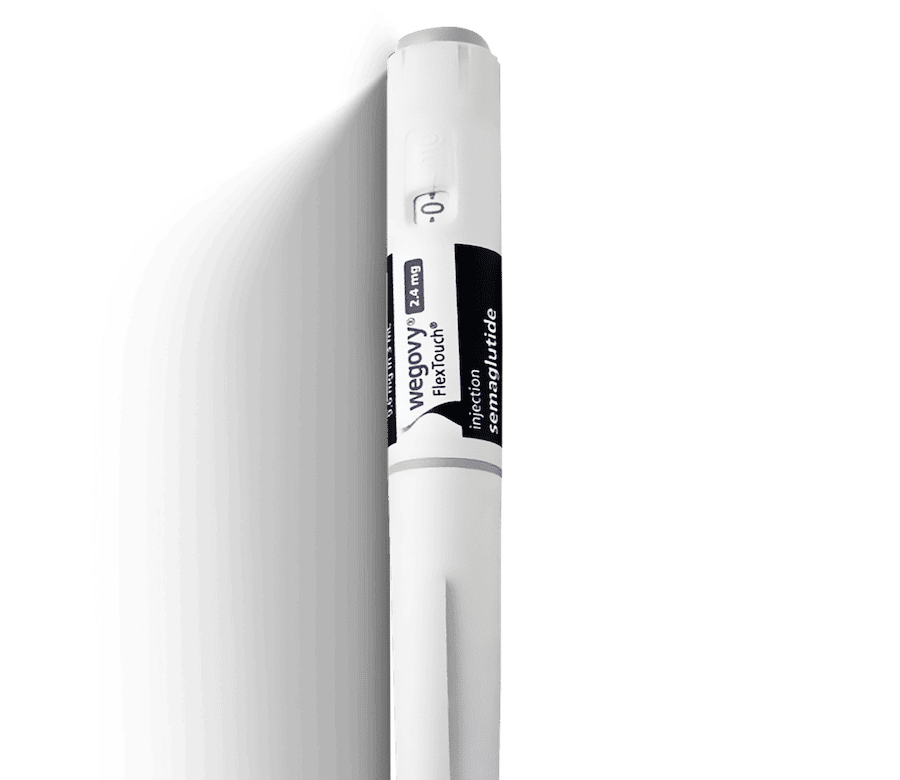
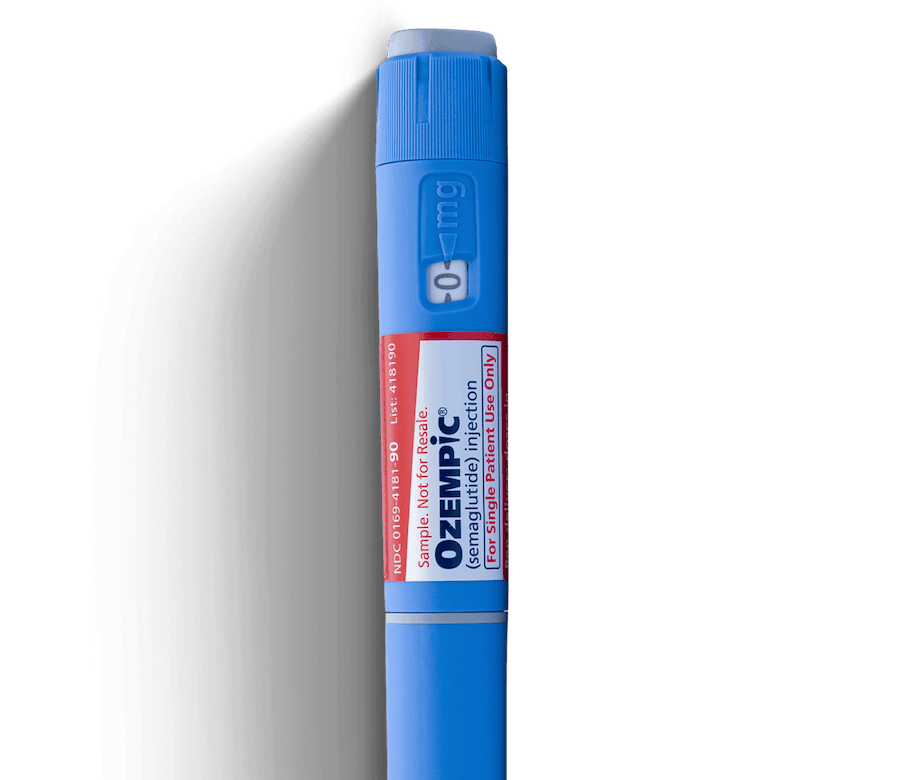
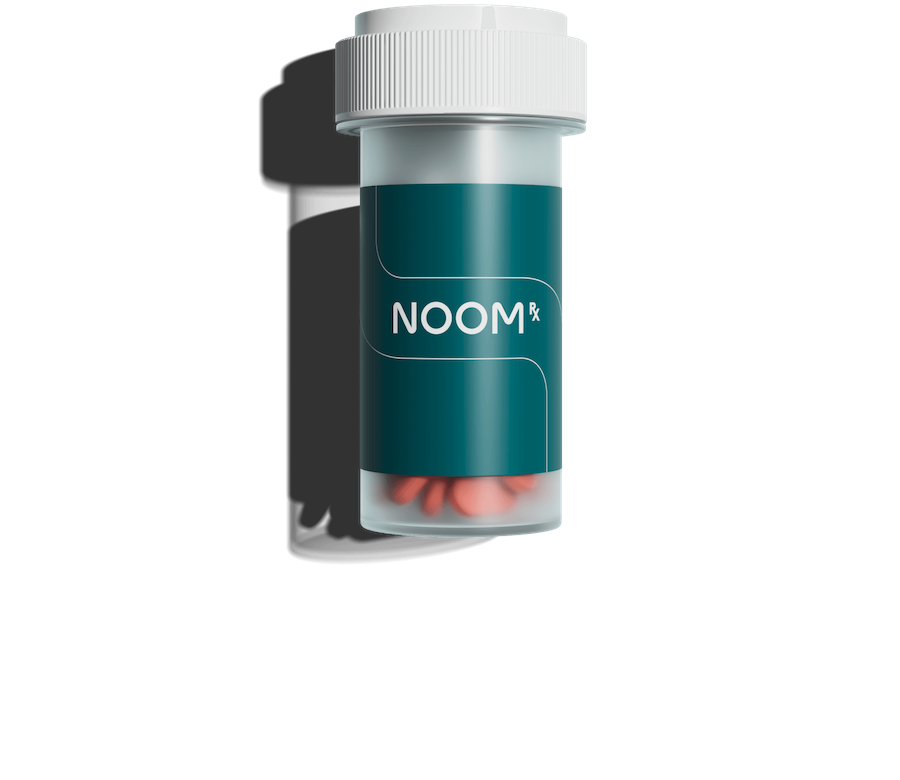
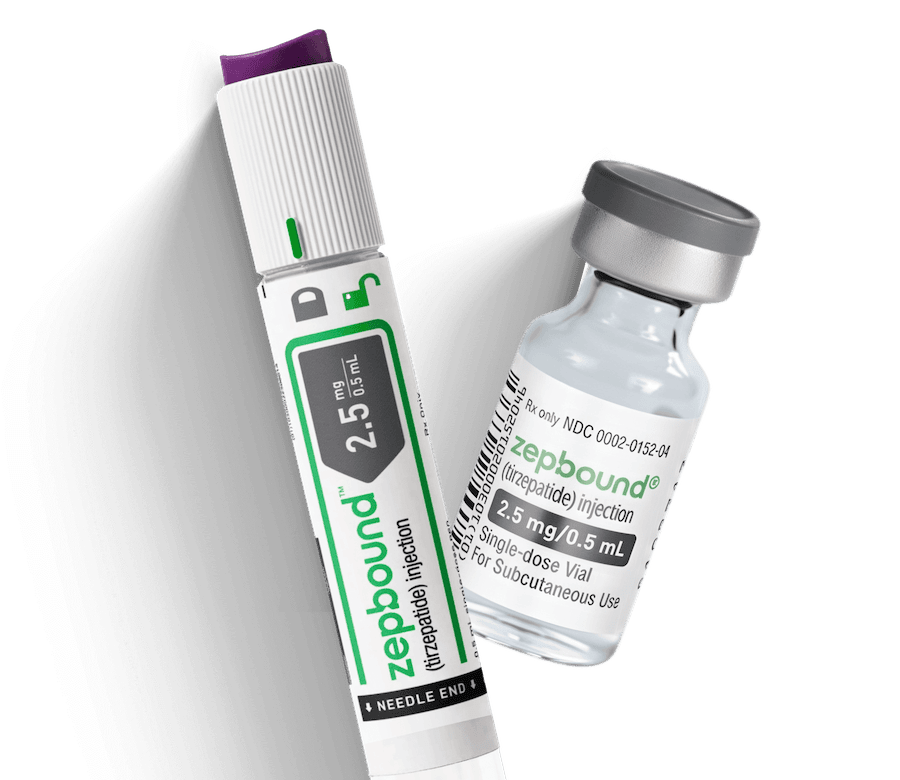
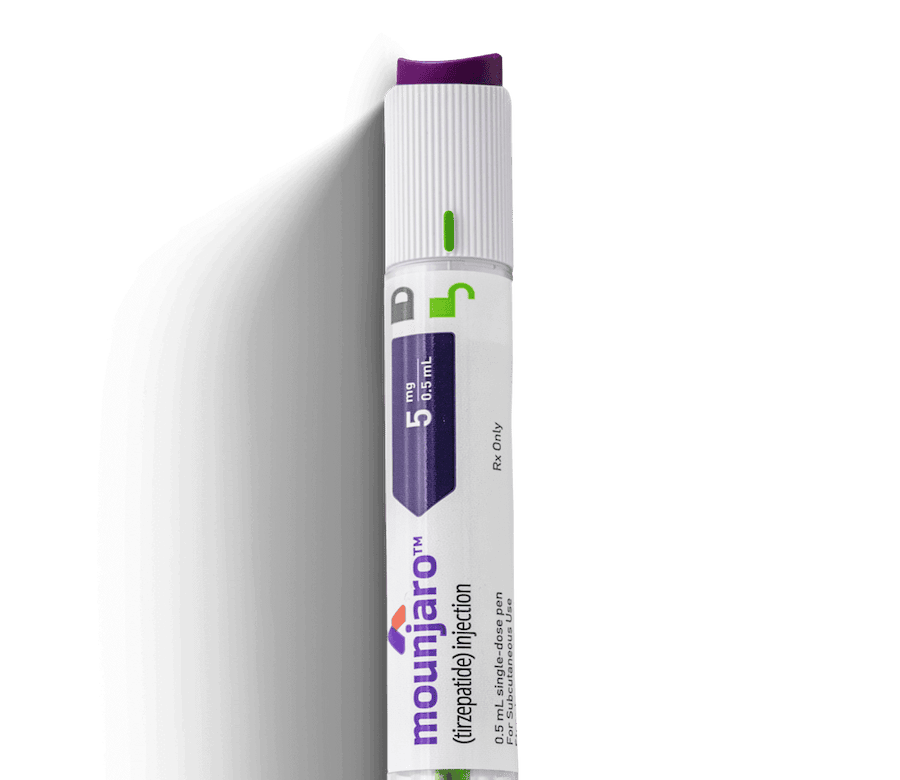
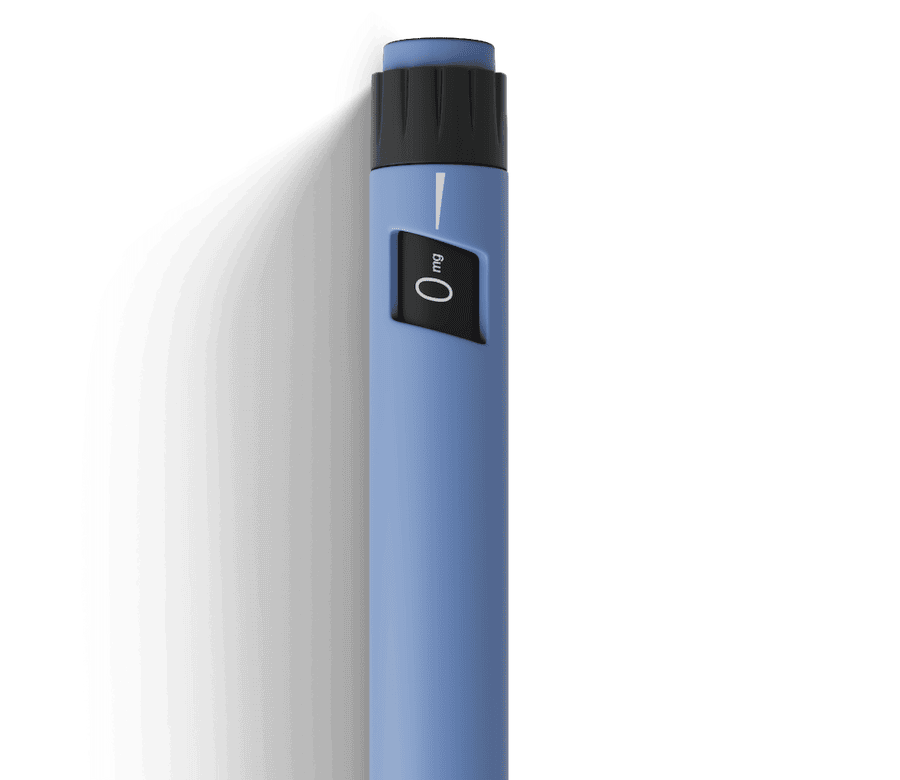



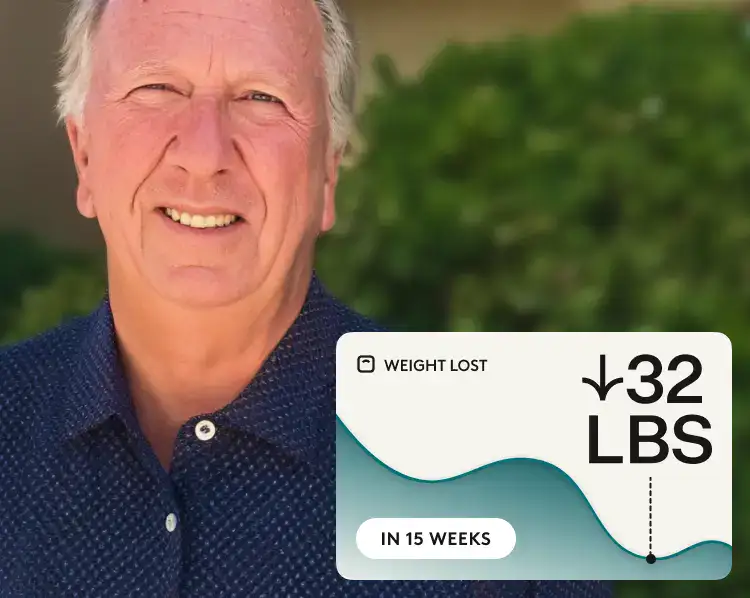

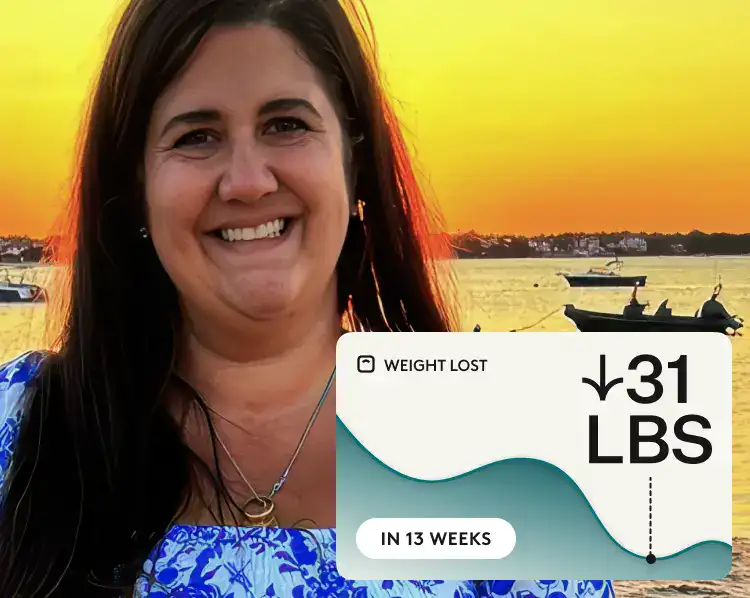

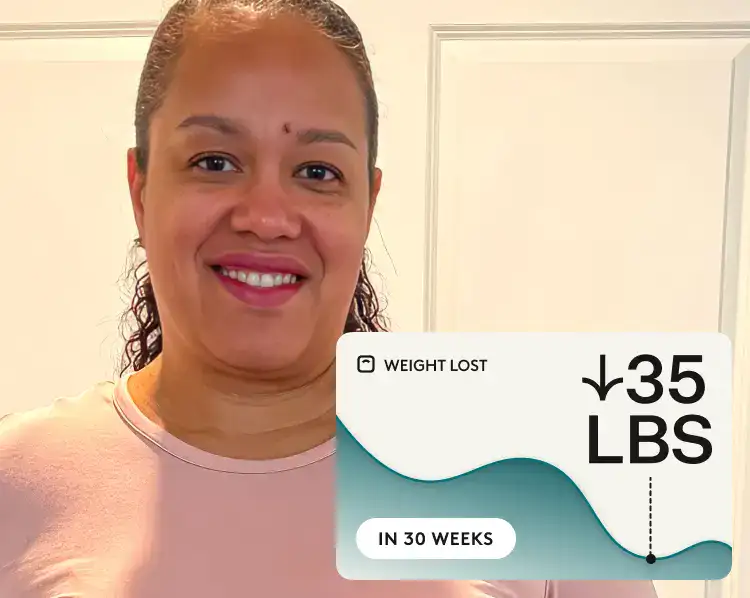
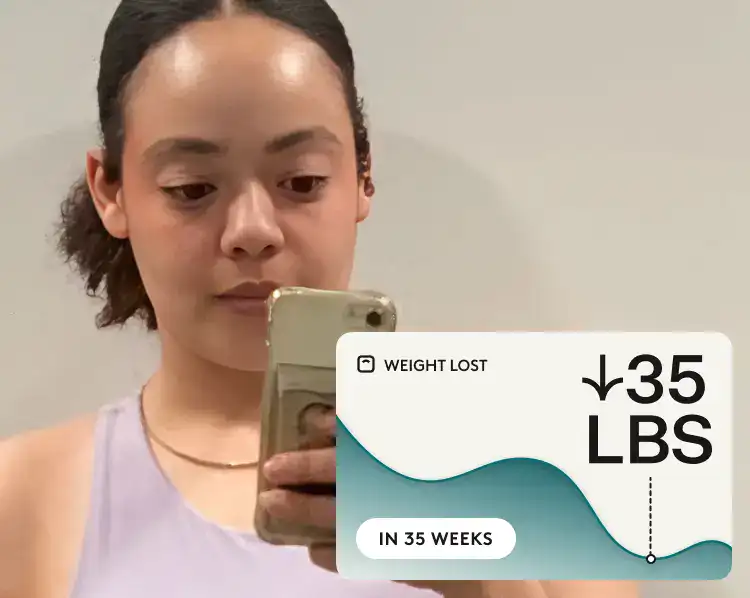



 Noom Team
Noom Team
 Shoshana Fishbein
Shoshana Fishbein


 Meaghan Cameron
Meaghan Cameron